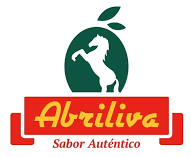Bonuses are a cornerstone of engaging gaming experiences, acting as catalysts that motivate players, deepen immersion, and foster long-term loyalty. In the realm of game design, understanding how to craft effective bonus mechanics is essential not only for attracting new players but also for maintaining their interest over time. To illustrate these principles, we can look at modern examples like prts 4 four collectors 💎, which exemplifies how layered bonus systems and thematic coherence drive player involvement. This article explores the core concepts behind bonuses, their psychological underpinnings, and practical lessons from contemporary gaming innovations.
- Introduction: The Power of Bonuses in Player Engagement
- The Educational Concept: How Incentives Drive Player Behavior
- Types of Bonuses and Their Impact on Engagement
- Case Study: Pirots 4 – A Modern Illustration
- The Gem System: Layers of Incentives
- Non-Obvious Insights: The Subtle Art of Bonus Design
- Lessons from Pirots 4 Applied to Broader Game Development
- Deepening Engagement Through Dynamic Bonus Systems
- Conclusion: Strategic Use of Bonuses to Enhance Player Engagement
Introduction: The Power of Bonuses in Player Engagement
Bonuses in gaming are special features or rewards that players can unlock or trigger during gameplay, often serving as a key driver of engagement. They transform passive entertainment into active, reward-driven experiences, encouraging players to continue exploring the game’s content. For example, a slot game might offer free spins or multipliers as bonuses, while a role-playing game could feature skill upgrades or narrative rewards. These mechanics are not arbitrary; they are carefully designed to reinforce player motivation and satisfaction.
Understanding bonus mechanics is crucial for game designers because it directly influences player retention. Well-crafted bonuses can create a sense of anticipation and excitement, making the gameplay more rewarding and less predictable. This is why modern game development heavily invests in layered and dynamic bonus systems that adapt to player behavior, fostering a sense of mastery and curiosity.
The Educational Concept: How Incentives Drive Player Behavior
Psychological Principles Behind Incentives and Motivation
Research in psychology and behavioral economics demonstrates that incentives activate the brain’s reward pathways, reinforcing behaviors through dopamine release. This biological mechanism underpins why players are drawn to bonuses—each reward, whether a small coin or a complex upgrade, provides immediate gratification that encourages continued play. For instance, the ‘Skinner Box’ experiments in behavioral psychology show how variable rewards—occasional bonuses—can sustain engagement more effectively than predictable patterns.
Balancing Reward Frequency and Excitement
A key factor in effective bonus design is the balance between reward frequency and the thrill of unpredictability. Too frequent rewards may diminish their perceived value, while infrequent but larger bonuses can heighten anticipation. Slot machines exemplify this with their mix of small regular wins and rare jackpot triggers, maintaining player excitement through a well-calibrated reward schedule.
Examples from Various Gaming Genres
In first-person shooters, bonus systems often involve unlocking powerful weapons after completing specific challenges, incentivizing skill mastery. Puzzle games may feature daily rewards or streak bonuses that promote habitual play. Role-playing games (RPGs) use experience points and loot drops as incentives to encourage exploration and persistence. These diverse approaches highlight how different genres leverage bonuses to foster sustained engagement.
Types of Bonuses and Their Impact on Engagement
Upgrades and Transformations: Enhancing Gameplay Complexity and Depth
Upgrades serve as a form of long-term incentive, allowing players to improve their characters, tools, or assets. In many games, collecting specific items or achieving milestones unlocks upgrade paths, adding layers of strategic decision-making. For example, a game might offer a tiered upgrade system where each level enhances abilities, encouraging players to invest time and resources into progression. This not only increases gameplay depth but also motivates players to persist for greater rewards.
Wilds and Coins: Creating Anticipation and Immediate Gratification
Wild symbols and coin multipliers are classic bonus features that generate instant excitement. When a wild appears, it often substitutes for other symbols, increasing the chance of winning. Coins and multipliers provide immediate payout boosts, giving players a tangible sense of success. These features often include visual and sound effects that amplify anticipation, making each spin or move thrilling.
Bonus Rounds and Special Features: Providing Episodic Engagement
Many games incorporate dedicated bonus rounds—distinct segments with unique mechanics—offering episodic content that keeps players returning. For example, a slot game might trigger a multi-stage bonus where players select options to reveal prizes, or an adventure game might unlock a new chapter. These features provide a change of pace and a sense of progression, deepening engagement through narrative and challenge.
Case Study: Pirots 4 – A Modern Illustration
Overview of Pirots 4 and Its Bonus Features
Pirots 4 exemplifies how layered bonus mechanics can elevate a game’s engagement level. Its core features include symbol upgrades, wild transformations, and episodic bonus rounds inspired by the game’s sci-fi theme. These elements intertwine to create an immersive experience where each bonus triggers a new layer of interaction.
How Symbols Like Upgrades, Wilds, and Bonuses Increase Player Involvement
In Pirots 4, symbols such as upgrades and wilds are not static. Upgrades evolve through a tiered system, unlocking higher payouts as players collect specific symbols, which encourages continuous play and strategic planning. Wild symbols, especially those triggered by special conditions, boost immediate winning potential and anticipation. Bonus features unlock episodic content that provides fresh challenges and rewards, maintaining long-term interest.
The Role of the Alien Invasion Feature and Its Strategic Collection Mechanic
A standout element in Pirots 4 is the Alien Invasion feature, which introduces a collection mechanic requiring players to gather symbols over multiple spins. This mechanic creates suspense and strategic engagement, as players aim to complete collections that unlock powerful rewards or bonuses. Such layered, goal-oriented features exemplify how strategic incentives sustain interest and foster mastery.
The Gem System: Layers of Incentives
Seven Upgrade Levels per Gem Color and Increasing Payouts
The gem system in Pirots 4 introduces a tiered reward structure where each gem color can be upgraded through seven levels. Each upgrade enhances the payout, incentivizing players to invest time in collecting and upgrading gems. This layered approach creates long-term goals within the game, promoting sustained engagement over multiple sessions.
How Tiered Rewards Motivate Continued Play and Investment
By progressively increasing payout amounts with each upgrade, players are motivated to keep collecting and strategizing around gem upgrades. This tiered reward system taps into intrinsic motivation—players derive satisfaction from progressing through levels, which encourages continued investment of time and effort.
Connecting Gem Upgrades to Long-term Engagement Strategies
Layered incentives like gem upgrades serve as a long-term engagement tool, aligning short-term actions with larger goals. They also foster a sense of mastery and accomplishment, which are critical psychological drivers for player retention. Games that incorporate such systems effectively balance immediate rewards with strategic progression, exemplified by Pirots 4’s layered gem mechanics.
Non-Obvious Insights: The Subtle Art of Bonus Design
The Psychological Impact of Random vs. Predictable Bonuses
Research indicates that unpredictable bonuses, such as random wilds or surprise free spins, stimulate a stronger dopamine response than predictable rewards. This unpredictability enhances excitement and curiosity, encouraging players to keep engaging with the game. Conversely, predictable bonuses can diminish thrill but may foster a sense of mastery. Striking the right balance is essential for sustained engagement.
The Importance of Thematic Coherence in Bonus Features
Bonus features that align with the overall game theme—such as alien invasions in sci-fi games—create a cohesive experience. This thematic coherence enhances immersion and emotional investment, making bonuses feel like a natural extension of the game world rather than isolated mechanics. Effective thematic integration can turn a simple bonus into an integral part of the narrative and gameplay.
Visual and Sound Cues as Engagement Amplifiers
Dynamic visual effects and synchronized sound cues during bonus rounds heighten player excitement. For example, flashing symbols, dramatic music, and animations create a multisensory experience that reinforces the significance of the bonus, encouraging players to savor the moment and eagerly anticipate future triggers.
Lessons from Pirots 4 Applied to Broader Game Development
Designing Bonuses That Foster Curiosity and Mastery
Effective bonus systems should encourage players to explore and learn. Pirots 4’s layered gem upgrades and collection mechanics exemplify how layered goals and incremental rewards motivate players to master game mechanics. Providing clear pathways for progression while maintaining an element of discovery enhances long-term engagement.
Balancing Risk and Reward to Sustain Interest
Incorporating risk elements—such as chance-based bonuses or volatile payout multipliers—can make gameplay more dynamic. For instance, high-stakes bonus rounds in Pirots 4 create tension and excitement, compelling players to weigh potential gains against losses. Striking an optimal balance ensures players remain engaged without feeling overwhelmed.
<h3 style=»font-family: Arial, sans-serif; font-size: 1.


